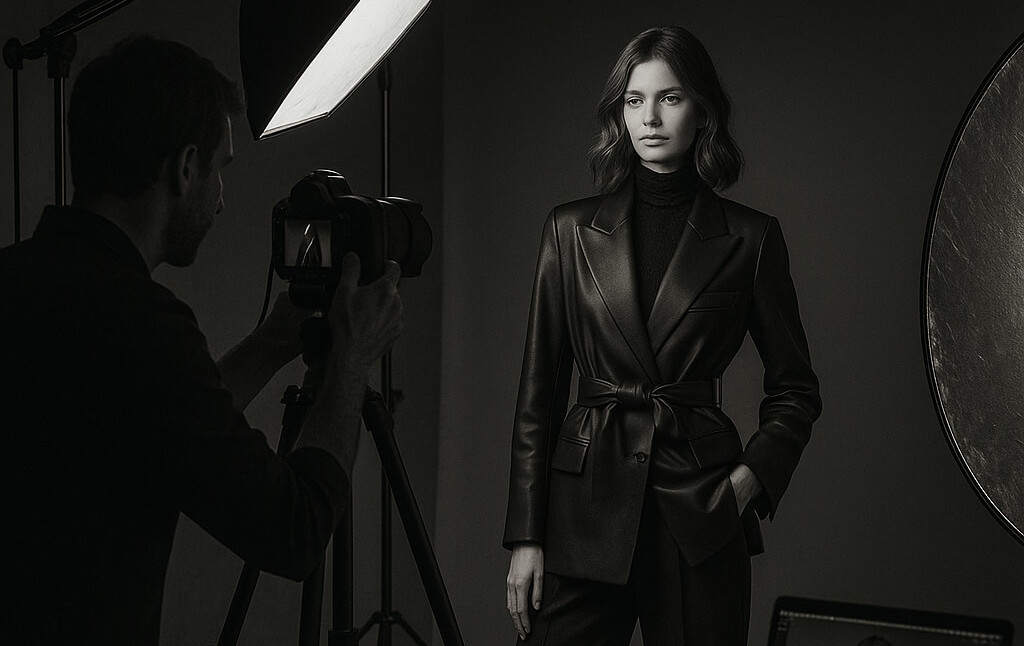Fashion photography is a dynamic and artistic genre that blends creativity, technical skills, and a strong understanding of visual storytelling. Whether you're aspiring to shoot for magazines, social media campaigns, or personal projects, mastering the essentials of fashion photography can help you craft images that resonate with style, mood, and professionalism.
What Is Fashion Photography?
Fashion photography is focused on presenting clothing, accessories, and style in visually compelling ways. It can range from high-gloss editorial spreads to natural lifestyle portraits. The ultimate goal is to communicate a brand's identity, express artistic vision, and evoke emotion—often all in one frame. This genre is about more than showcasing fashion—it's about setting a tone, creating context, and telling a story.
Explore more: What is Artistic Photography?
Essential Equipment You’ll Need
To produce professional results, having the right tools is key:
- Camera: A full-frame DSLR or mirrorless camera provides high resolution, dynamic range, and low-light performance ideal for fashion photography. (Best Cameras for Beginners in 2025)
- Lenses: Prime lenses like 50mm and 85mm are perfect for sharp, flattering portraits. A 24–70mm zoom lens adds flexibility in framing. (Best Lenses for Portrait Photography)
- Tripod: Useful for studio sessions, especially when consistency in framing is needed. (Best Tripods for Travel and Studio Photography)
- Reflectors & Light Modifiers: Help shape natural or artificial light to flatter the model and outfit. (Must-Have Camera Accessories)
- Remote Triggers & Tethering Tools: Allow you to shoot hands-free or preview images in real-time on a monitor, which is great when working with a team.
Mastering Lighting for Fashion Photography
Lighting can make or break your fashion images. Mastering different setups lets you create the mood and focus you need:
- Natural Lighting: Ideal for outdoor or lifestyle fashion shoots. Golden hour provides soft, flattering tones. Cloudy days help diffuse harsh sunlight. (Using Natural Light)
- Studio Lighting: Offers precision and consistency. Use softboxes, strobes, or LED panels. (Studio Lighting Guide)
- Creative Techniques: Try Rembrandt lighting or split lighting for a sculpted look. (Rembrandt Lighting) (Split Lighting)
Also explore: Best Lighting for Portrait Photography, Best Lighting for Clothing Photography, Best Lighting for Streaming, Best Video Lighting Setup
Posing and Composition
Model posing and shot composition have a significant impact:
- Posing: Direct the model into natural or expressive stances. Use power poses for bold editorials, or movement for casual vibes.
- Composition Techniques: Use the rule of thirds, leading lines, and negative space to balance the image. (Negative Space Guide)
Styling & Creative Direction
Fashion photography thrives on collaboration:
- Wardrobe Stylists: Ensure outfit consistency with the concept.
- Hair & Makeup Artists: Align looks with the theme.
- Creative Directors: Oversee the story and visual cohesion.
Moodboards, color palettes, and style guides help create a unified shoot.
Explore: How to Create a Signature Style, How to Build a Personal Brand
Post-Production and Editing
Editing enhances and polishes your final images:
Also explore: Best Photo Editing Apps, Restore Old Photos, How to Take Professional-Looking Photos
Final Tips for Shooting Like a Pro
- Plan Ahead: Scout locations, organize outfits, and rehearse ideas.
- Build Rapport: Communicate clearly and positively with models.
- Stay Updated: Trends evolve—keep learning and experimenting.
- Portfolio Presentation: Create a cohesive, professional showcase. (Build a Photography Website)
With the right skills, tools, and vision, fashion photography becomes an exciting and rewarding avenue for visual storytelling.
